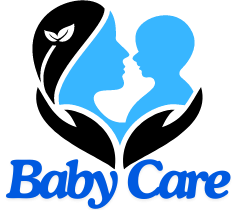A baby is considered a newborn for the first 28 days of life. This period, also known as the neonatal phase, is crucial for development.
Understanding the newborn stage is essential for parents and caregivers. The first 28 days of a baby’s life are a time of significant physical and emotional changes, adaptation, and bonding.
During the neonatal period, newborns adjust to life outside the womb, developing critical skills like feeding and sleeping patterns.
Parental awareness and care during this time set the foundation for a child’s healthy growth. Parents should also seek regular pediatric check-ups to ensure their newborn’s development is on track. Proper nutrition, gentle handling, and responding to a baby’s needs are imperative during these initial weeks.
By recognizing the importance of the newborn phase, caregivers can provide the best start for their little ones.
:max_bytes(150000):strip_icc()/MortenFalchSortland-2ffa3998906b487ab05976f08649df8a.jpg)
Credit: www.verywellfamily.com
Understanding Newborn Development
Newborn development is a rapid process filled with notable achievements in the first few weeks of life.
Parents and caregivers typically witness significant physical growth during this period. It’s common to see a baby’s weight increase, as gaining about an ounce per day is expected. Length and head circumference also steadily grow, marking important physical development milestones.
Cognitive and emotional changes are equally remarkable. Even as newborns, babies start to exhibit preferences for their parents’ voices and may begin to develop a social smile by the end of the newborn phase.
Eye-tracking of objects and responding to sounds are early signs of their burgeoning awareness and emotional connections.
| Physical Growth Milestones | Cognitive and Emotional Milestones |
|---|---|
| – Weight gain (approx. 1 oz/day) | – Recognizing parents’ voices |
| – Increase in length | – Beginning of social smiling |
| – Growth in head circumference | – Eye-tracking of objects |
| – Steady growth overall | – Responding to sounds |
Newborn Phase Duration
The newborn phase conventionally encompasses the first two months of a baby’s life. During this time, infants are adapting to life outside the womb, and parents are adjusting to their new routines.
The transition from the newborn stage to an infant is often marked by significant developmental milestones, such as the ability to lift the head and increased social engagement.
Different cultures may have unique perspectives on the duration of the newborn period. Cultural practices could extend this phase’s classification based on traditional beliefs or customs.
It’s essential to recognize that these variances play a crucial role in how the length of the newborn stage is perceived around the world.
Health And Growth Indicators
Weight and Height Benchmarks play a key role in determining a newborn’s health and development. Typically, a healthy newborn’s weight should double by the time they reach their fifth month and triple by their first birthday.
As for height, infants usually grow about 1 to 1.5 inches each month for the first six months. Regular monitoring of these indicators helps in ensuring the baby’s on track with developmental milestones.
Immunization Schedule Importance cannot be overstressed for a newborn’s well-being. Starting from as early as birth, vaccines protect infants from severe and potentially life-threatening illnesses. Adhering to the recommended schedule is crucial for developing a healthy immune system.
A newborn’s growth and health are closely monitored through Pediatric Checkups. In the early stages of life, visits to the pediatrician are recommended at 3 to 5 days after birth, followed by checkups at 1, 2, 4, 6, 9, and 12 months. These frequent evaluations allow healthcare providers to assess development progress and address any concerns promptly.
Parental Support For Newborns
Bonding with a newborn is crucial, involving skin-to-skin contact, gentle rocking, and infant massage. These activities enhance parental connection and promote emotional security for the baby.
Nutrition for newborns primarily involves breastfeeding or formula. Both provide essential nutrients critical for development. Parents should feed on demand to support growth spurts and individual needs.
Establishing sleep routines can be challenging, but setting a consistent bedtime and wake-up time helps. A calming bedtime ritual and a peaceful sleep environment are beneficial for healthy sleep patterns.
Common Concerns In Newborn Stage
Newborn development progresses rapidly, but parents often worry about their baby’s growth and milestones. Developmental delays may manifest through missed milestones such as limited movement, lack of eye contact, or delayed reactions to sounds. It’s critical to monitor these signs attentively.
Seek immediate medical consultation if you observe prolonged symptoms or if the baby shows irregular patterns that diverge from typical development stages. Doctors can provide assessments and early intervention strategies if necessary, ensuring the baby’s health and developmental progress.
Every baby grows at an individual pace, so comparisons to other infants might not be indicative of a problem. Understanding and embracing your baby’s unique timeline is essential. Still, keeping track of developmental milestones is vital for early detection of potential issues.
Frequently Asked Questions On How Long Is A Baby A Newborn?
What Defines A Baby As A Newborn?
A baby is considered a newborn from birth up until about 2 months of age.
How Do Development Stages Affect Newborn Status?
Newborn status ends as infants enter the infant stage at around 2 to 3 months, signaling significant developmental progress.
When Is The End Of The Newborn Period?
The newborn period concludes once the baby reaches 2 months, transitioning into the infant stage of growth.
Conclusion
Navigating the stages of early infancy can feel overwhelming, but recognizing the transition from ‘newborn’ to ‘baby’ helps set expectations. Generally, the first two months mark this tender period. As we have explored, developmental milestones, not just weeks, chart this course.
Remember, every child’s journey is unique. Cherish these fleeting moments, embracing each new discovery in your baby’s growth.

